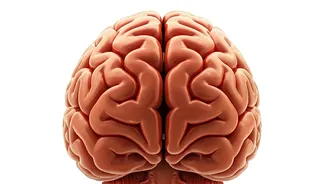Embrace Whole Grains
Incorporating whole grains into your diet is a great strategy. Whole grains, rich in fiber, play a significant role in safeguarding both heart and gut
health. Fiber's presence aids in regulating blood sugar levels and promotes the growth of beneficial gut bacteria, contributing to overall health. Furthermore, a diet abundant in whole grains has been linked to better cognitive function, suggesting a positive impact on brain health. By swapping refined grains for whole grain options like brown rice, oats, and whole-wheat bread, individuals can effortlessly make a beneficial change to their diet. It is an easily manageable transition that can yield substantial health rewards, including a potentially reduced risk of dementia, while fostering a comprehensive approach to well-being.
Fuel with Fruits, Veggies
A diet rich in fresh fruits and vegetables is another cornerstone for good health. These foods are packed with vital vitamins, minerals, and antioxidants that protect cells from damage. Antioxidants play a crucial role in combating oxidative stress, a factor implicated in cognitive decline. By regularly consuming a variety of colorful fruits and vegetables, you are giving your body the building blocks needed to support optimal brain function and lower the risk of various health issues. It is like taking a daily dose of natural medicine. Aim for a wide array of options, including leafy greens, berries, citrus fruits, and cruciferous vegetables like broccoli and cauliflower, to get a broad spectrum of nutrients that contribute to a healthier lifestyle and a sharper mind, helping in the fight against dementia.
Prioritize Regular Exercise
Physical activity has numerous benefits, extending well beyond physical fitness. Regular exercise has been proven to enhance cognitive function and potentially lower the risk of dementia. Exercise stimulates blood flow to the brain, providing it with vital oxygen and nutrients. Furthermore, it encourages the release of brain-derived neurotrophic factor (BDNF), a protein that supports the growth and survival of brain cells. Engaging in activities like brisk walking, jogging, swimming, or dancing for at least 30 minutes most days of the week can yield significant cognitive benefits. Even incorporating short bursts of activity throughout the day, like taking the stairs instead of the elevator or going for a quick walk during a break, can contribute to overall brain health. Exercise is an accessible and effective way to safeguard your cognitive capabilities.
Ensure Sufficient Sunlight
Sunlight exposure, particularly during morning hours, is critical for maintaining overall well-being. Sunlight helps the body produce vitamin D, an important nutrient for bone health and may also play a role in brain health. Adequate vitamin D levels have been linked to improved cognitive function and a reduced risk of cognitive decline. Moreover, spending time outdoors in natural light can boost mood and regulate the body's natural sleep-wake cycle, contributing to better sleep quality. Making a habit of getting at least 15-20 minutes of sunlight each day can be extremely beneficial. This can be easily achieved by stepping outside during a lunch break or taking a walk in the morning. Being mindful of sun protection is also important, ensuring that you balance the benefits of sunlight with the need to protect your skin.
Prioritize Quality Sleep
Getting enough sleep is crucial for cognitive health and overall well-being. During sleep, the brain clears out waste products and consolidates memories, processes that are essential for cognitive function. Chronic sleep deprivation can lead to impaired memory, focus, and an increased risk of cognitive decline. Aim for 7-9 hours of quality sleep each night. Create a relaxing bedtime routine by establishing a regular sleep schedule, creating a comfortable sleep environment, and avoiding screen time before bed. Furthermore, ensure your bedroom is dark, quiet, and cool to help your body prepare for sleep. By prioritizing sleep, you can support your brain health and reduce the risk of cognitive issues.
Stay Socially Connected
Maintaining strong social connections is vital for cognitive well-being. Social interaction and engagement have been shown to protect against cognitive decline and improve mental health. Regularly engaging with others by spending time with friends and family, participating in social activities, or joining clubs and organizations can provide mental stimulation and reduce feelings of isolation. Social interaction exercises the brain, keeping it active and engaged. Staying socially connected combats loneliness, which is a known risk factor for cognitive decline. Building and maintaining social networks, whether in person or online, offers a supportive environment that enhances cognitive health and contributes to a fulfilling life.
Embrace Regular Mental Challenges
Engaging in activities that challenge the mind is a key part of maintaining cognitive health. Keeping the brain active and engaged through mental exercises can help enhance cognitive function and potentially reduce the risk of dementia. Activities such as reading, solving puzzles, learning new skills, playing games that require strategic thinking, or pursuing lifelong learning can stimulate different areas of the brain, strengthening neural connections. By making mental challenges a regular part of your routine, you can promote cognitive resilience and stay sharp as you age. Consider varying your activities to target different cognitive skills and ensure a well-rounded brain workout. This proactive approach to mental fitness is a great way to support long-term brain health and overall well-being.


















